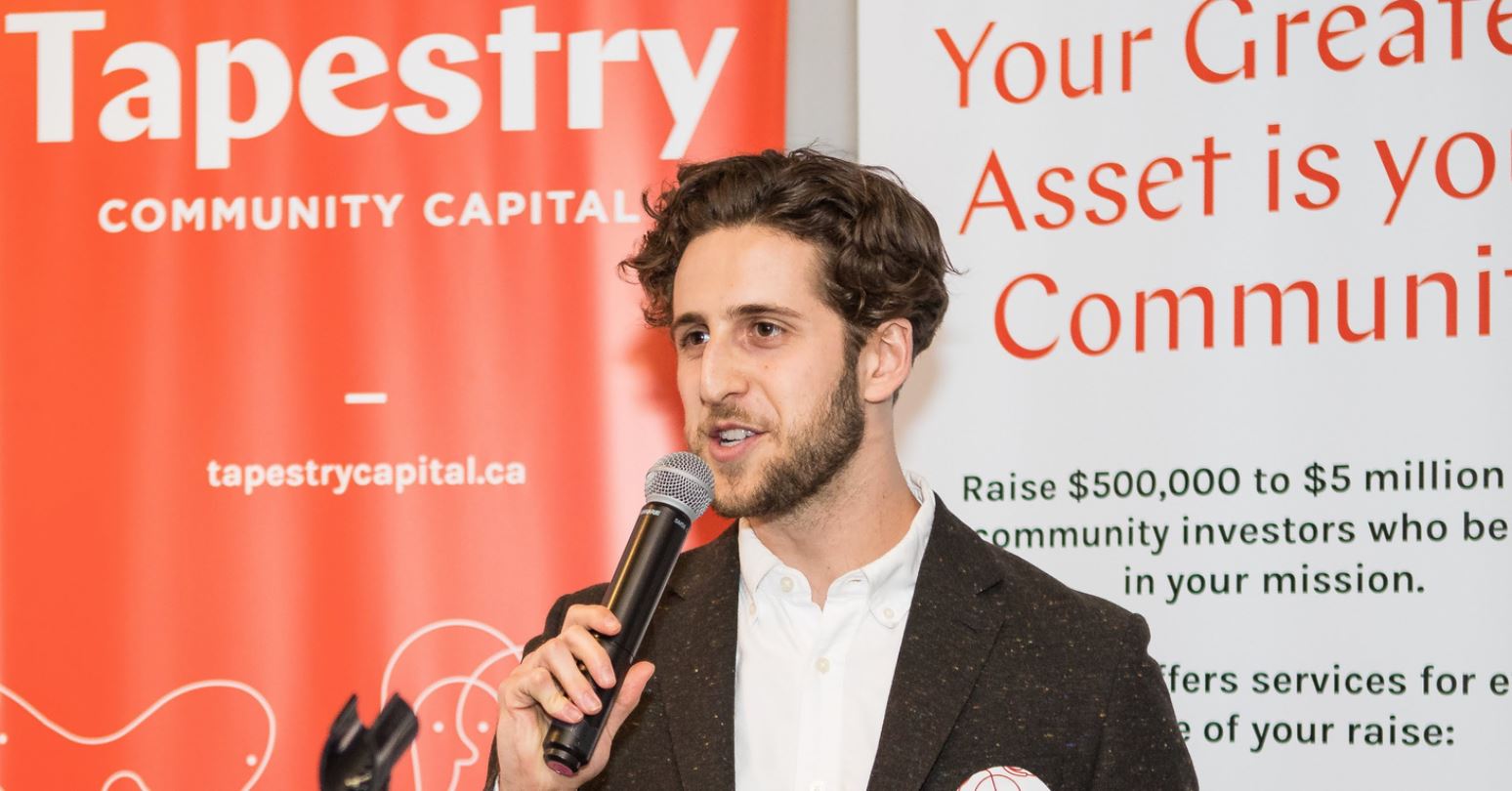Ryan Collins-Swartz, HBA '14, began his journey to becoming a sustainability leader when he realized he wanted to use business as a force for positive change, leading him to Tapestry Community Capital.
Ryan Collins-Swartz's journey to becoming a sustainability leader began in his first year of business school with a common question: banker, consultant, accountant, marketer? The choices seemed limited and his answer was none of them.
It was at that moment he realized that instead of fitting in, Ryan would have to pave his own path. He enrolled in a course on Social Enterprise, followed by the Sustainability Certificate program. There, Ryan witnessed the possibilities of using business as a force for positive change and connected with a community of students with shared values. When the decision came to go on exchange, which meant miss the career recruitment cycle, Ryan didn’t hesitate to attend the Rotterdam School of Management in the Netherlands. He knew this opportunity would get him out of the classroom and into a world of endless possibilities where he would develop a global perspective on sustainability and social enterprise.
Exploring Social Innovation
After graduation, Ryan returned home to explore opportunities to create positive change in his community. He participated in a social innovation fellowship where he worked with a diverse group of young leaders who saw business as the problem, not a solution to societal issues. While non-profits worked tirelessly to find sustainability solutions, for-profit corporations often prioritized growth over sustainability, he found. Despite making positive impacts, non-profit organizations did not have access to the same funding options as the for-profit world. As a result, they were forced to chase unpredictable grants and could not properly invest in their future.
An introduction from a former colleague led him to the Toronto Renewable Energy Co-operative (TREC), which seemed to have the answer to the funding challenges faced by the non-profit sector. TREC had developed renewable energy projects across Ontario, raising investment with Community Bonds - a tool that allows nonprofits to raise investment directly from community members, who could invest as low as $1,000. TREC’s Solar Share cooperative has raised over $70 million in $1,000 minimum Bonds for solar energy projects across Ontario. Despite its revolutionary potential, few organizations knew Community Bonds existed and navigating the process of raising investment and issuing securities was complex.
Tapestry Community Capital: Making Social Impact Accessible
Six months after joining TREC, Ryan, along with their staff and Board of Directors, launched Tapestry Community Capital. “The idea behind Tapestry,” says Ryan reflecting fondly on this time, “was to take this model that had been so powerful in the renewable energy sector and make it accessible to organizations across the country working in a broad range of sectors, from arts and culture to affordable housing.”
To date, Tapestry has supported organizations in raising over $110 million from thousands of investors across Canada, unlocking funding for affordable housing, renewable energy, and arts. Through its investment platform, Atticus, Tapestry has made investing in a Community Bond as simple as sending an e-Transfer.
In 2020, Ryan was promoted to Co-Executive Director. Under his leadership, Tapestry has grown their impact from just in Ontario to across Canada. They have built key funding partnerships and begun a landmark project with Canada Mortgage and Housing Corporation to mobilize community investment as a solution to the affordable housing crisis.
Ryan’s new role has also shaped his approach to social impact from an employer standpoint. “A guiding principle in my leadership is that creating a more sustainable world starts with creating a sustainable place to work. It’s important that we have a positive impact on our staff - their well-being, learning, and livelihoods. From there, we are in a position to expand that impact on our clients, partners, investors, and communities.”
As he reflects on his experiences, Ryan urges students to embrace uncertainty and not be afraid to take risks. "It's okay to not have all the answers at the end of your degree," Ryan says. "Enjoy the process of self-discovery, say yes to new opportunities, find your people and never stop learning.” When he started, there was no conventional career path into sustainability or social impact. Now, there are more ways than ever to get involved. “Our world desperately needs young people willing to challenge the status quo and build new systems to create a more equitable and sustainable future."



